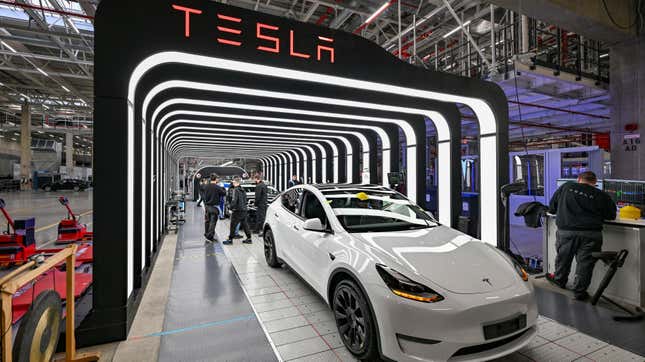
[ad_1]

Regulationyers that efficiently sued to pressure reimbursement of some compensation from Tesla administrators after alleged overpayment need what quantities to over $10,000 an hour in authorized charges, in keeping with Reuters.
From 2017 to 2020, companions and employees from New York-based regulation companies Bleichmar Fonti & Auld and Fields Kupka & Shukurov labored over 10,000 hours on a case in opposition to 12 administrators from Tesla’s board. The attorneys stated the administrators had been overpaid a whole bunch of thousands and thousands of {dollars}, eventually successful the case. Together with what the administrators agreed to repay, the whole settlement quantity got here to $919 million. The cash went again to Tesla and its shareholders.
The attorneys at the moment are requesting a Delaware court docket grant them 25 % of that settlement which Reuters says works out to $229 million or round $10,000 an hour. The attorneys are additionally searching for a further $1 million in bills.
David Paige, founding father of consulting agency Authorized Charge Advisors, stated that whereas it’s arduous to provide a mean of authorized charges on account of these kind of “contingency-fee instances,” he thinks they’re asking for means an excessive amount of.
…he referred to as the Tesla plaintiffs’ request “extraordinary” in comparison with hourly charges that high out round $2,000 for star company attorneys. Paige stated the court docket will finally must assess the scale of the price in opposition to the good thing about the litigation.
In accordance with a court docket submitting, Reuters says that Tesla’s administrators are anticipated to object to the price request. Nonetheless, it could not be the primary time such massive charges have been agreed to previously.
Delaware courts have accredited larger hourly charges. In 2012, the Delaware Supreme Court docket affirmed a $304 million price in a Southern Copper shareholder lawsuit involving $2 billion of damages. The price labored out to $35,000 an hour, and the defendants opposed it. The state’s excessive court docket stated judges ought to look at the result achieved, not the hourly fee.
[ad_2]